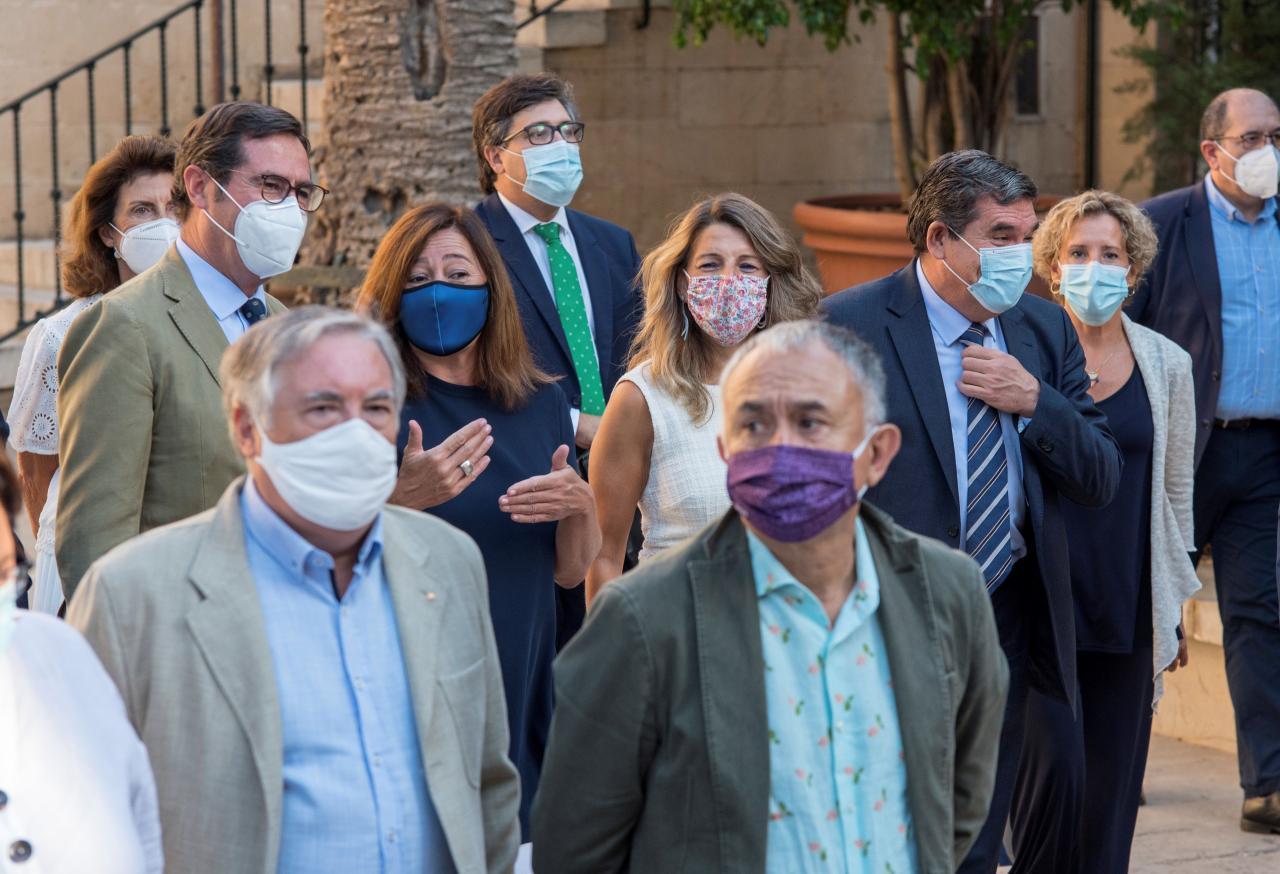"If current measures to stop coronavirus contagion are adhered to, there will be no need for other measures. Nothing makes us think that we will have to return to a situation like that in March." So said the health minister Salvador Illa last weekend. Later in the week, he said something similar: "The circumstances are against a general confinement." The prime minister, Pedro Sánchez, had his say: "A homogeneous state of alarm with equally harsh measures throughout the country would not be justified."
Local measures
Local measures there may be, but the government is ruling out a return to lockdown (or something akin to it). Ministers will be hoping and praying that local measures do the trick and that autumn and winter don't see wave after wave. Sánchez, Illa and others know only too well that the public can stand for so much. In the Balearics, President Armengol will know this, too.
But local measures will be adopted. Various municipalities were being lined up for some restrictions, while for all municipalities the police are to get lists of people who should be in quarantine. The health ministry will provide town halls with this information. The police will be able to check on them.
Does this smack of being a breach of data protection? What of the privacy of medical records? Or is it a necessary measure to guarantee everyone's safety? Coronavirus, it can't be denied, has raised its issues, and so we also had the prosecution service proposing sentences of up to a year for people who repeatedly broke the lockdown rules during the state of alarm.
No ERTE agreement
Hardly for the first time, ERTE and its extension was the subject of intense interest. The current arrangements expire at the end of this month. The Spanish government will be granting an extension, but agreement on the detail has been elusive.
The employment and social security ministers were in Palma for the "social dialogue table". Business and unions were calling for extensions until Easter or later. They were also wanting better terms for however long the extension might be. Yolanda Díaz, the employment minister, was saying that she didn't wish to place a deadline on a further extension. It seemed as if agreement might be struck in Palma, but it wasn't. In truth, it was never going to be. Díaz had said as much. This week, who knows, there might be some clarity. It is badly needed.
Aid plans
ERTE is one of the elements of survival for businesses, especially those in the tourism industry. Diaz spoke of there being a special labour protection plan for the Balearics, without giving any detail. Otherwise, there were calls for an "emergency aid plan" for tourism and a "comprehensive aid plan". Leading business figures were pressing for these plans - the presidents of the Spanish Hotels Confederation, the Spanish Confederation of Business Organisations, and Exceltur, the alliance for tourism excellence.
They were all singing from the same hymn sheet. ERTE and Spanish government credits aren't enough. There needs to be more, and Brussels will be providing some of this, as President Armengol readily acknowledged in pitching for the Balearics to be given priority when it comes to distributing European funds.
The care homes' outbreaks
While the number of new coronavirus cases in the Balearics continued to fluctuate on a daily basis, there were specific outbreaks, none more so than in care homes. The outbreaks at the homes in Font de sa Cala and Sant Joan were the worst - 33 and 83 cases respectively.
In the case of Sant Joan, it would seem that a positive test on a resident who needed to be taken to hospital after suffering a fall led to the discovery of all the other cases. This, and the scale of the outbreaks, raised renewed concerns about procedures in care homes.


No comments
To be able to write a comment, you have to be registered and logged in
Currently there are no comments.